My favorite tech products of 2013 [Mihaita]
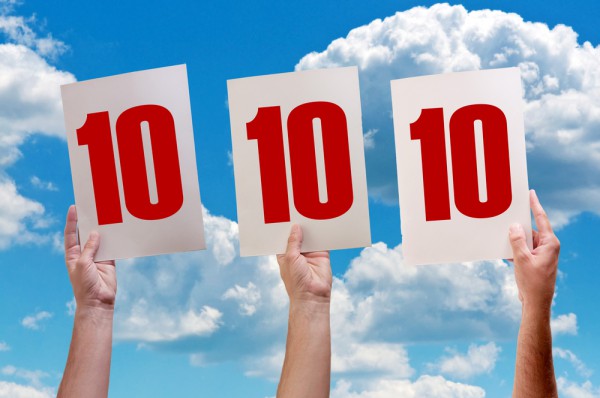
Since the beginning of 2013 and until late-December, countless new tech products have tried to outdo their predecessors and the competition, and woo potential buyers, with more features than before (some of them gimmicky, some of them useful), distinct form factors, lower price-tags, wider ranges of color options (like the Lumia series and, later in 2013, the iPhone 5c) and any differentiating factor that can make you say "I'll buy it".
Needless to say, there have been quite a few disappointing new products launched throughout 2013. Going back to CES, we can take a look at some of the best examples of "what were they thinking", starting with a potty that tries to leverage iPad apps to teach your young child how to use one properly. But, at the same time, there are some tech products that were also launched in 2013, and have managed to stand out (in a good way). In this article I will walk you through my favorite ones.
At the secret pre-Christmas BetaNews meeting (held in a secret chat room, away from privy eyes), the high council has decided that every member of the team should write a story detailing their favorite tech products of the year. My story is the first to be published before January 1, so keep an eye on our site for the other ones to come while you enjoy the holidays!
Xbox One
For someone who is not a gamer anymore, the Xbox One seems like a weird choice for such an article. After all, the long-standing purpose of consoles has been to play the latest game titles (and will continue as one of the main roles in the future). But, Microsoft has managed to grab my attention with the other noteworthy features offered by the Xbox One.
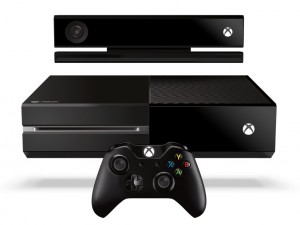 The console's role in the modern livingroom has moved past gaming, as the Xbox One also wants to be the central entertainment hub for the non-gamer. Microsoft has cast a wider net, which makes it more appealing to folks like me who want to watch movies, listen to music, browse the Internet, chat with friends and so on, and also play the occasional game for old time's sake. The way the system works, in conjunction with Kinect, makes it my top pick as a livingroom device. And, because switching between users is so seamless, the Xbox One is family-friendly as well (no bickering about signing in and out, or using someone else's profile).
The console's role in the modern livingroom has moved past gaming, as the Xbox One also wants to be the central entertainment hub for the non-gamer. Microsoft has cast a wider net, which makes it more appealing to folks like me who want to watch movies, listen to music, browse the Internet, chat with friends and so on, and also play the occasional game for old time's sake. The way the system works, in conjunction with Kinect, makes it my top pick as a livingroom device. And, because switching between users is so seamless, the Xbox One is family-friendly as well (no bickering about signing in and out, or using someone else's profile).
MacBook Air (2013)
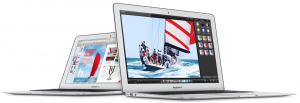 As you can imagine, the reason why Apple's latest MacBook Air generation made this list is not ultimate performance or portability. There are much more powerful and more portable devices around, that dwarf this device.
As you can imagine, the reason why Apple's latest MacBook Air generation made this list is not ultimate performance or portability. There are much more powerful and more portable devices around, that dwarf this device.
But, no similar ultrabook today can match the latest MacBook Air when it comes to battery life. It is the reason why I purchased the 13.3-inch model. As I am writing this story in Google Chrome (known as a power-hogger among browsers) and using some other apps in the background, I have more than six hours of battery life left (at 78 percent remaining). Also, the keyboard illumination is on, and the screen is not set to its dimmest setting. I frequently get better battery life with the 2013 MacBook Air compared to my 2013 Google Nexus 7.
The new MacBook Air lineup positively impacts people's expectations of how long an ultrabook should last unplugged and sets the bar very high for its rivals in this space when it comes to battery life.
Surface Pro 2
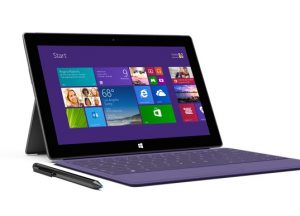 The Surface Pro 2 is the Windows 8.1 tablet that may finally convince prosumers to ditch their small ultrabook. It has not changed drastically on the outside, compared to its predecessor, but the internal improvements are huge.
The Surface Pro 2 is the Windows 8.1 tablet that may finally convince prosumers to ditch their small ultrabook. It has not changed drastically on the outside, compared to its predecessor, but the internal improvements are huge.
The Surface Pro 2 offers a new Haswell-generation Intel Core i5 processor, up to 8 GB of RAM and 512 GB of SSD storage, and quite a bit more battery life compared to the original.
This makes it suitable for resource-intensive scenarios, like editing content in Photoshop, handling virtual machines, compiling and other similar tasks. And, when that's done, the Surface Pro 2 can be used in bed to watch a movie, read a book and browse the web. It is the most versatile Windows 8.1 tablet of 2013.
OS X 10.9 Mavericks
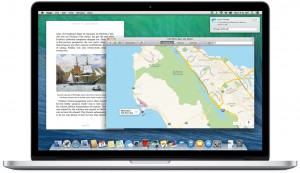 Since I mentioned the new MacBook Air above, it is only fair that I do the same for the latest OS X iteration, known as Mavericks. The new version of Apple's Mac operating system gets a lot of things right, including, finally, proper multi-monitor support. It also tremendously improves battery life, which extends from old Macs to the latest and greatest ones from the Cupertino, Calif.-based company.
Since I mentioned the new MacBook Air above, it is only fair that I do the same for the latest OS X iteration, known as Mavericks. The new version of Apple's Mac operating system gets a lot of things right, including, finally, proper multi-monitor support. It also tremendously improves battery life, which extends from old Macs to the latest and greatest ones from the Cupertino, Calif.-based company.
With OS X 10.9 Mavericks, Apple also tries to bring some iOS-ness to its Mac operating system. Apps like iBooks and Maps launched alongside it, while some elements of the UI were redesigned to adopt the new look that debuted with iOS 7. And, all this is free. What more can one ask?
Windows 8.1
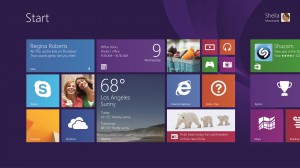 I have had a love-hate relationship with Windows 8. The operating system was designed with touchscreens in mind, but my laptop did not (and does not) have a touchscreen. Its new UI (Modern UI) revolved around apps, but the Store did not have many popular offerings to choose from. There are other examples, but you get the gist.
I have had a love-hate relationship with Windows 8. The operating system was designed with touchscreens in mind, but my laptop did not (and does not) have a touchscreen. Its new UI (Modern UI) revolved around apps, but the Store did not have many popular offerings to choose from. There are other examples, but you get the gist.
Windows 8.1 fixed the touch part, by letting people like me, who do not use touchscreen-equipped devices, to make better use of the operating system, albeit still with some minor inconveniences. The app situation has improved as well, and the whole operating system feels much more polished than before and better thought-out. It is, from my point of view, the best consumer OS from Microsoft yet.
Parallels 9
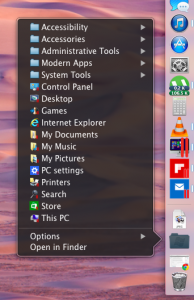 A virtualization software is an odd choice for a list of favorite tech products. After all, it is not particularly exciting from a consumer point of view. But Parallels 9's entry is well-deserved, and here is why.
A virtualization software is an odd choice for a list of favorite tech products. After all, it is not particularly exciting from a consumer point of view. But Parallels 9's entry is well-deserved, and here is why.
For me, Parallels 9 offers the best way to run Windows 8.1 on Macs, much more so than Boot Camp. The software is designed to integrate well with OS X 10.9 Mavericks, allows for snappy performance in the virtual machine, and provides a trouble-free experience.
There are nice touches to it, such as the "Like a Mac" option which almost blends Windows 8.1 with OS X, to allow for a seamless experience, the ability to open Windows 8.1 apps from the OS X Dock, the option to choose between performance or battery life prioritization, and other features.
Chromecast
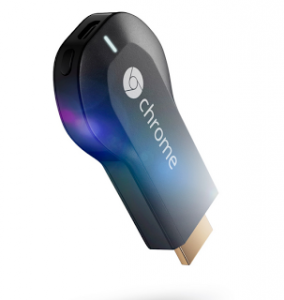 For $35, Google's Chromecast is the most affordable gadget worthy of your money in 2013. Its appeal may be somewhat limited at the moment due to a lack of apps and developer support, but that is slowly changing as the ecosystem grows further.
For $35, Google's Chromecast is the most affordable gadget worthy of your money in 2013. Its appeal may be somewhat limited at the moment due to a lack of apps and developer support, but that is slowly changing as the ecosystem grows further.
Why has the Chromecast made this list? Well, for one it costs $35 -- this makes it a risk-free tech purchase in my book (unlike a $500 tablet or $700 smartphone), and a steal. The gadget allows to play content, using a smartphone, tablet or PC, on the TV it is connected to, and turn the TV on using said devices. These are the features that I like the most about it, and the ones I think would appeal the most to potential buyers as well.
As my colleague Brian Fagioli, who reviewed the product, said, the Chromecast may be in its infancy but has great potential. For $35, the investment in what the dongle offers and could soon do is pretty small.
iPad Air
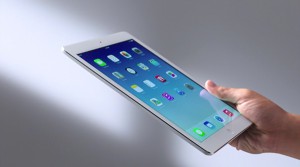 Even though the new iPad Mini with Retina Display is just as powerful and pixel-packed, there is something about the bigger iPad Air that makes it the more attractive tablet for me.
Even though the new iPad Mini with Retina Display is just as powerful and pixel-packed, there is something about the bigger iPad Air that makes it the more attractive tablet for me.
The display is the same as before, resolution and size-wise, but the small physical dimensions and the low weight make the full-size iPad a different beast altogether, that is both more capable and more portable than any other tablet in its class.
It is no Nexus 7 in terms of lightness and portability, but it could definitely fit the role of the only tablet in the household with only small sacrifices. The iPad Air is, hands down, my favorite tablet of 2013, without even bringing the strong iOS app selection or iOS 7's new features into discussion. Add 4G LTE (and, perhaps, a keyboard) into the mix, and you have a tablet that can truly replace a small ultrabook for most people, with tremendous portability and battery life benefits.
HTC One
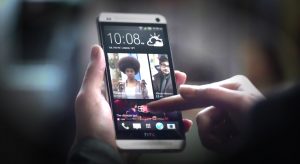 Nowadays, consumers who want to purchase a well-built and visually attractive Android phone have little to no good options, unless they want to jump ship to the iPhone camp. Too many vendors prioritize meaningless hardware specifications and small footprints, which makes HTC and its One so much more refreshing.
Nowadays, consumers who want to purchase a well-built and visually attractive Android phone have little to no good options, unless they want to jump ship to the iPhone camp. Too many vendors prioritize meaningless hardware specifications and small footprints, which makes HTC and its One so much more refreshing.
The One looks great, feels great in the hand and has great looking software. From my point of view, it is the best Android smartphone that was released this year, bar none. The speakers still deliver unmatched audio reproduction, while the exterior design will likely top that of upcoming smartphones for a long time to come.
I sure hope the release of the One will trigger a shift in the Android makers' mindsets, and a move towards improving the overall experience, inside-out.
Your Turn, 2014!
I am looking forward to 2014, and I can only hope that next year there will be many more attractive tech products for us to choose from. Competition is heating up in this field, and I sense that some magical things will happen following January 1.
What are you favorite products of 2013? What do you expect to see in 2014? Share your thoughts in the comments below.
Photo Credit: igor.stevanovic/Shutterstock
